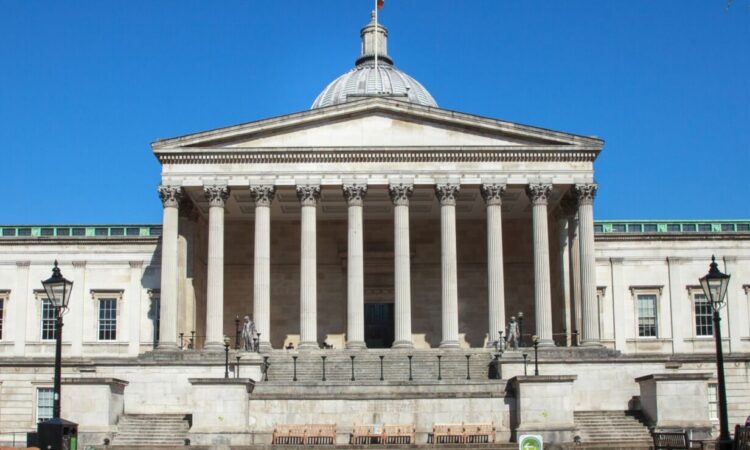
A US litigation funder is bankrolling massive lawsuits against UK schools on behalf of students seeking tuition reimbursement for remote classes during the Covid-19 pandemic.
TRGP Capital has invested an undisclosed amount in the roughly 140,000 claims against 18 UK universities, according to a lawyer involved in the cases. University College London, London School of Economics, and University of Manchester are among the schools accused of charging full tuition for lower quality, remote education after classes moved online.
“The only way they could be brought was if they were financed,” said Shimon Goldwater, a partner at Asserson Law Office, said of the claims, which the firm is handling along with Harcus Parker Limited. “There needs to be a funder if it’s going to be able to go to trial, so it was always contingent on getting some funding.”
Undergraduate claims are valued at an average of £5,000 (about $6,345) each, adding up to potentially hundreds of millions in payouts, according to Goldwater. The amount is higher for international students, which pay more in tuition and make up about 20 to 30 percent of the claims.
Goldwater declined to say how much money TRGP has invested in the litigation or detail the terms of the agreement. TRGP, which has also backed massive US litigation against Johnson & Johnson over talc products, declined to comment.
The students say they’re owed a refund for time spent in online classes during the pandemic. Lawyers say the schools breached contracts with students by charging them full tuition.
Students also claim they are owed money for missed classes due to teacher strikes, which took place at various points between 2018 and 2022. UK professors went on strike over pension and pay disputes, resulting in about three weeks of missed school in each of the 20-week school years during that time period.
The first claims filed are against University College London, the largest of the schools, in England and Wales High Court. The two sides in July began an eight-month pause in the litigation to attempt mediation. They will resume litigation early next year if they’re not able to resolve the claims.
“We respect the right of our students to complain and seek redress if they feel that they have not received the support they expected from us,” said Professor Kathleen Armour, a UCL vice-provost, in a written statement.
“We are pleased that the High Court has ordered that proceedings be stayed to allow for the parties to attempt to resolve the students’ claims without the need for further litigation, and that the Court has recognised the part our complaints procedure can play,” Armour said.
Marketing Push
Lawyers alert individual students of the funding arrangement when they hire the firms to file claims, Goldwater said. The agreements state that 35 percent of any settlement or award will go to attorneys fees, as well litigation finance and insurance.
The losing party in a UK lawsuit is generally required to pay the other side’s legal fees. The lawyers suing University College London have taken out a taken out a £5 million ($6.3 million) policy to cover that risk, Goldwater said.
The firms hope to obtain more clients. More than 2 million people attend university in the UK per year.
The firms have placed advertisements in London Underground stations near universities and leafletted graduation ceremonies, Goldwater said. He declined to comment on whether outside funding went toward marketing, but said his firm has not outside money for that purpose in the past.
“Anyone who was at university at that time is entitled to join and we think has a financial claim and it’d be a shame if people miss out on that,” said Goldwater. “There are definitely people who’ve heard about us but haven’t yet kind of made up their mind, haven’t signed up.”
“As it goes through the court process, we’ll find that people see this as real,” he added. “Some people think it’s a scam or it’s some kind of too good to be true or, you know, they think it won’t really happen.”
Hundreds of US schools have similarly been sued for reimbursement, with a variety of results. Columbia University in May 2021 settled with more than 30,000 students for $12.5 million.
A federal judge in Atlanta in June approved partial class action certification in a lawsuit by a parent of an Emory University student seeking reimbursement. A similar suit against New York University is pending in federal court in Manhattan.
Boston University is among the schools that have successfully fought off lawsuits seeking the return of fees paid during pandemic closures. A judge in April rejected students’ contract breach claims against the university, finding that the school did not make an open-ended promise to provide an on-campus experience.






